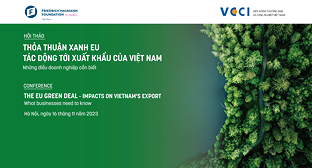Zimbabwe: Unfair Practices Distort Trade
11/03/2008 12:00
Unfair Trade Practices are activities that distort trade and give an unfair advantage to those practicing them. One of the functions of the Competition and Tariff Commission as spelt out in the Competition Act [Chapter 14:28] is to carry out investigations and recommend remedial action to Government on unfair trade practices that result in economic injury to the local industry.
Injury to an industry exists when there are actual and potential negative effects on domestic producers' sales, profit, output, market share, productivity, return on investment, utilisation of capacity, cash flow, inventories employment, wages, growth etc. The Act mandates the Commission to carry out investigations into any complaint of unfair trade practice.
The term 'unfair practice' is defined in terms of the Competition Act as to mean "the dumping of imported commodities on the domestic market; the granted of a bounty or subsidy with respect to imported commodities; and any other practice in relation to the importation of commodities or services or the sale of imported commodities or the provision of an imported service where such practice is declared to be unfair".
The Commission therefore undertakes investigations involving dumping and subsidisation of imported products, as well as surges in imports that cause injury to local industry.
Related to this issue is the fact that
These instruments, clearly spelt out under the WTO in the Agreement on Implementation of Article VI of the General Agreement on Tariffs and Trade (GATT) 1994, Agreement on Subsidies and Countervailing Measures and Agreement on Safeguards, are namely anti-dumping, countervailing and safeguard measures respectively. Anti-dumping measures are applied where dumping is concerned, countervailing measures are applied in the case of subsidisation and safeguard measures are applied where there are surges in imports.
In order to utilise these measures, member States must put in place national legislation which conform to the WTO agreements in these particular area.
The regulations are meant to counter unfair trade practices resulting from dumping and subsidisation. Zimbabwe also has a place the national legislation on Safeguards, namely the Competition (Safeguards) (Investigations) Regulations, 2006, that were gazetted in 2006 as Statutory Instrument No. 217 2006, which is meant to counter surges in imports that cause or threaten to cause serious injury to the local industry.
In carrying out the investigations, the Commission has to adhere to the procedures in the WTO compatible legislation in order to minimise litigation by affected members under the WTO Dispute Settlement System. In principle, the investigation is initiated upon a written a written application by or on behalf of the affected domestic industry. Specific definitions of industry provided for in the legislation have to be adhered to when the application is made.
After investigations are carried out, the Commission can recommend offsetting measures to counteract the injurious unfair trade practice or rejection if there is no evidence of the practice and injury to the domestic industry.
The next three articles will have an in depth analysis of the three areas cited above i.e. dumping, subsidisation and surges in imports. In terms of definitions, investigation procedures and remedial action that can be taken.
Published by the Competition and Tariff Commission, Tel: (04) 771126-9, (04) 773563-4) in conjunction with the Depart-ment of Anti-Corruption and Anti-Mono-polies, Tel: (04) 707091.
The Herald (
Source: allafrica.com
Các tin khác
- More efforts needed to maintain export growth to China: Insiders (24/04/2024)
- Shadow trade minister calls for greater focus on removal of Chinese trade barriers (24/04/2024)
- New U.S. Solar Panel Tariff Intensifies Sino-American Green Tech War (24/04/2024)
- It is expected that there are higher orders and revenue in the second quarter from European businesses (24/04/2024)
- U.S. Ceramic Manufacturers Seeking Tariffs Against Indian Import (24/04/2024)
 Home
Home
 About Us
About Us




















